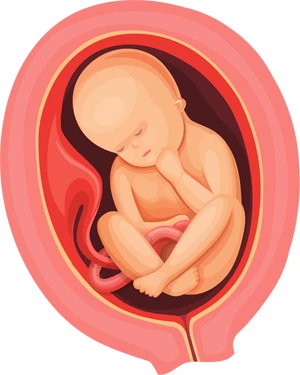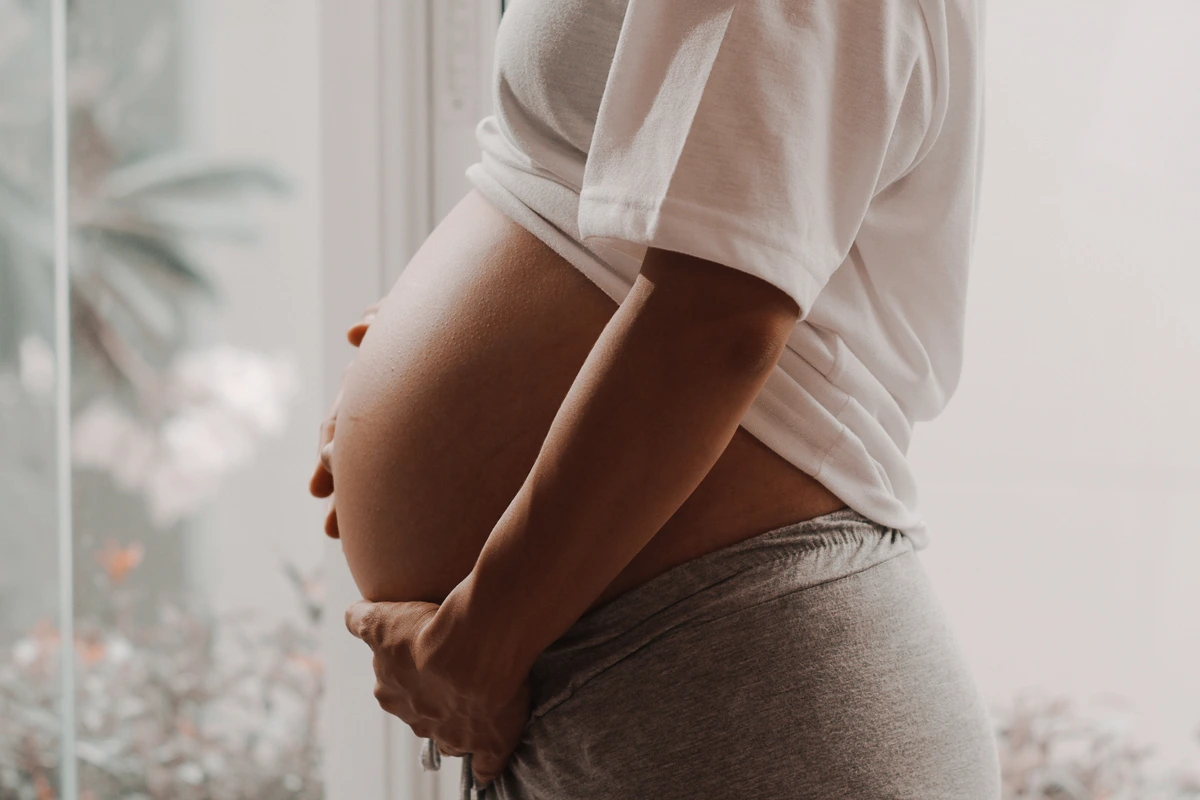During the seventh month of pregnancy, significant milestones occur. The baby’s organs are mostly developed, and they begin to practice breathing movements. The senses continue to sharpen, and the baby can distinguish light from darkness. Moms might experience increased pressure on the bladder and more noticeable movements as the baby gains strength. Regular prenatal care, a balanced diet, and staying active are essential during this phase to ensure a healthy pregnancy.
Table of Contents
ToggleWhat are the common symptoms during the 7th month of pregnancy?
Common symptoms during the 7th month of pregnancy may include:
- Itchy skin due to stretching
- Back pain
- Dizziness may lessen
- The pregnancy waddle due to the expanding belly
- Lightheadedness and fatigue
- Emotional changes
- Pain, tenderness, and sensitivity in the breasts
- Skin changes such as dryness, flakiness, or increased sensitivity
- Digestive issues like constipation and gas due to slower digestion
What are the inside and outside changes in the 7th month of pregnancy?

Baby’s Development in the 7th month
In the seventh month of pregnancy, the baby’s development continues to advance, preparing for the final stages before birth. At this stage, the baby is refining essential skills such as sucking and swallowing, in preparation for breastfeeding. The lungs are maturing, and the baby’s movements may be more coordinated. While the baby’s eyes have been open for a few weeks, they are now becoming more sensitive to light. Mothers might notice the baby’s patterns of wakefulness and sleep. Expectant mothers must prioritize their health, ensuring proper nutrition, hydration, and rest. Regular prenatal check-ups remain vital for monitoring both the mother’s and the baby’s well-being as the due date approaches.
Changes to the Body
During the seventh month of pregnancy, the body undergoes notable changes as it nears the final stages of gestation. The baby bump continues to grow, and mothers may experience increased discomfort as the uterus puts additional pressure on internal organs. Backaches and pelvic pain may become more pronounced. Some women notice swelling in the hands and feet due to fluid retention. As the body prepares for childbirth, mothers may also experience Braxton Hicks contractions, which are practice contractions that help the uterus get ready for labor. Adequate rest, maintaining good posture, and staying hydrated are essential during this period. Regular prenatal check-ups remain crucial for monitoring both maternal and fetal health as the due date approaches.
What is the quick list on the 7th month of pregnancy?
At seven months pregnant, you are entering the third trimester and your baby is continuing to grow and develop rapidly.
- Take a day off and pamper yourself
- Look into childcare options if you will be returning to work
- Think about who you want in the delivery room
- Develop a birth plan
- Figure out two routes to the hospital or birthing center
- Begin listing baby names
- Plan a bump photoshoot for the third trimester
- Plan your baby shower and create a registry
- Research baby care classes or workshops
- Discuss your baby’s development with your healthcare provider
- Schedule your next prenatal appointment or ultrasound
- Practice healthy eating and exercise to maintain your energy levels
- Be prepared for increased Braxton-Hicks contractions
What are some things to avoid during the 7th month of pregnancy?
During the 7th month of pregnancy, it’s important to be mindful of what you eat and avoid.
- Raw or undercooked meat, seafood, and poultry
- Unpasteurized dairy products (soft cheeses and milk) and refrigerated ready-to-eat meats like deli meat
- Foods in dented cans, which increase the risk of botulism
- Raw seafood, like sushi or raw oysters, which increases the risk of foodborne illnesses such as salmonella
- Caffeine and aerated beverages
- Spicy and oily foods
Last Updated on January 14, 2024
Written By
With a solid foundation in family dynamics, child development, and a knack for assessing products, our content is built on a strong grasp of our topics. We use trustworthy sources, seek advice from experts, and stay current with the latest happenings in our fields. We always give credit to our sources, reveal any possible conflicts of interest, and deliver info in a truthful and unbiased way. Follow us on Facebook or join our Facebook Group.
Start your journey to confident parenting
Join over 2,000+ parents who receive free practical advice and tips from Joyful PH. Unsubscribe anytime.
You may also like
Third Trimester Pregnancy (28-40 Weeks)
The third trimester of pregnancy, spanning from 28 to 40 weeks, marks the final…
Second Trimester Pregnancy (14-27 Weeks)
The second trimester of pregnancy, spanning from 14 to 27 weeks, is often…
First Trimester Pregnancy (0-13 Weeks)
During the first trimester of pregnancy, spanning from 0 to 13 weeks,…
9 Months Pregnancy
In the ninth and final month of pregnancy, the journey comes to its culmination…
8 Months Pregnancy
In the eighth month of pregnancy, the baby is getting ready for birth, and the…
6 Months Pregnancy
In the sixth month of pregnancy, significant developments continue as the baby…







